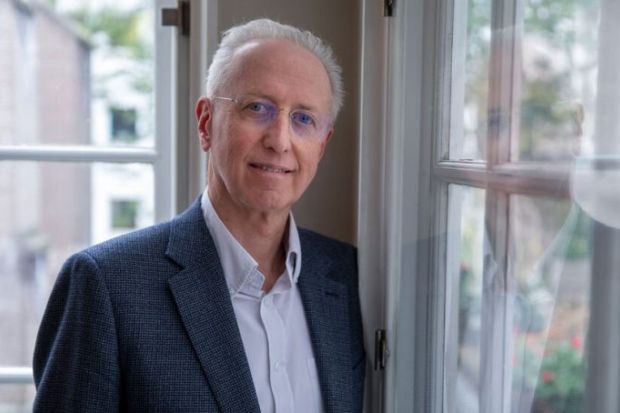Sir Andy Haines’ no-show at the awards ceremony planned for him at the University of Southern California would, until recently, have been deemed unthinkable. But the Tyler Prize’s willingness to hand out its $200,000 (£152,000) award, often called the “Nobel of the Environment”, in a virtual event shows how times have changed, and few have done more to change thinking about the negative impact of climate change – in this case, its effects on human health – than its latest recipient.
“I didn’t think it was appropriate to fly halfway round the world to pick up a climate change prize,” reflected Sir Andy, professor of public health and primary care at the London School of Hygiene and Tropical Medicine (LSHTM), which he led for almost a decade until October 2010.
Welcoming the shifting norms around academic travel, he said: “We’ve really changed our mentality about travel – and Covid has also helped to reset how we do things.”
For many years, however, his appeals for academics and others to rethink their approach to carbon emissions fell on deaf ears.
His first BMJ publication – “Global Warming and Health”, in 1991, drawing attention to the ways that climate change was likely to affect the spread of illness and disease across the world, and inflict terrible hunger and mortality in many countries – was met by “complete indifference” from the scientific community, he told Times Higher Education.
“It was a problem that was almost too big for people to process – when you’re faced with these catastrophic consequences, people feel disempowered,” Sir Andy said.
Unfazed by the reaction, he began publishing about not only the impacts of a changing climate and fossil fuel use on health but also about how greener living could improve health outcomes for societies across the world. “We needed to look at the co-benefits of moving towards a net zero economy – too often the complicated nature of challenge meant it did not resonate with [people] in their day-to-day lives,” he explained.
“We now understand how even relatively low levels of air pollution can impact on respiratory disease, which is one reason to move towards cleaner energy.”
Sir Andy was among the first to research the health benefits of low-carbon actions – including cycling, walking and taking public transport instead of driving, as well as using clean, renewable energy and eating a diet low in red meat and high in fruit and vegetables.
Such research might seem uncontroversial, but the publication of his 2009 Lancet paper explaining how a 30 per cent reduction in livestock production and red meat consumption would lead to a 15 per cent fall in the burden of disease in the UK drew a hostile reception from the farming and food industries.
“When we ran the data, there was a lot of pushback. But now it is commonly accepted that ruminants do impact our health and cause damage to the planet,” he said. “We need to get the balance right – people depend on animals for their livelihoods, but we also need to move towards more of a plant-based diet that favours planetary health.”
Sir Andy, whose prize money will be used to fund early career researchers at LSHTM, said he was heartened by the explosion of research now taking place around climate change, which has helped to make the issue a political priority. His 1991 BMJ paper drew attention to the meagre £15 million spent by the government on energy efficiency that year, with the government now promising to spend at least £26 billion by 2030 on its Net Carbon Strategy.
“We still have a vast amount to do – the Paris climate agreement was a great achievement, but we need to keep leaning into it. Extreme denial [of the impact of climate change] is fading, but I worry the Paris accord is not being implemented as I hoped,” he said.
Almost 40 years ago, he was involved with International Physicians for the Prevention of Nuclear War when it was awarded the Nobel Prize for Peace in 1985, two years before the pact to reduce the proliferation of nuclear weapons was signed by the US and the Soviet Union. Sir Andy noted the importance of grasping political opportunities – be it on nuclear weapons or climate change – when they occur.
“Unfortunately, there were a lot of compromises between presidents Reagan and Gorbachev – the opportunity to get rid of nuclear weapons was not taken, and decades later, we are now at a much greater risk than we could have imagined,” he said.
Seizing the moment to “avoid potential catastrophe” – his warning from three decades ago – has perhaps never come at a more apt time.
POSTSCRIPT:
Print headline: We ‘still have a vast amount to do’ to tackle climate change
Register to continue
Why register?
- Registration is free and only takes a moment
- Once registered, you can read 3 articles a month
- Sign up for our newsletter
Subscribe
Or subscribe for unlimited access to:
- Unlimited access to news, views, insights & reviews
- Digital editions
- Digital access to THE’s university and college rankings analysis
Already registered or a current subscriber? Login








